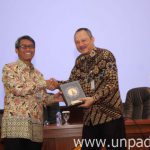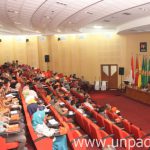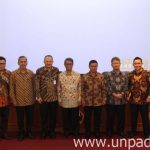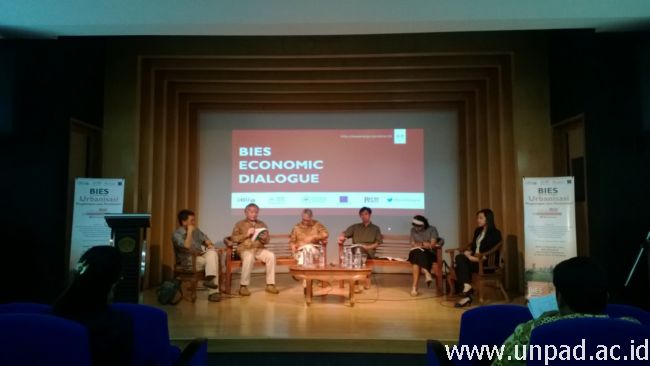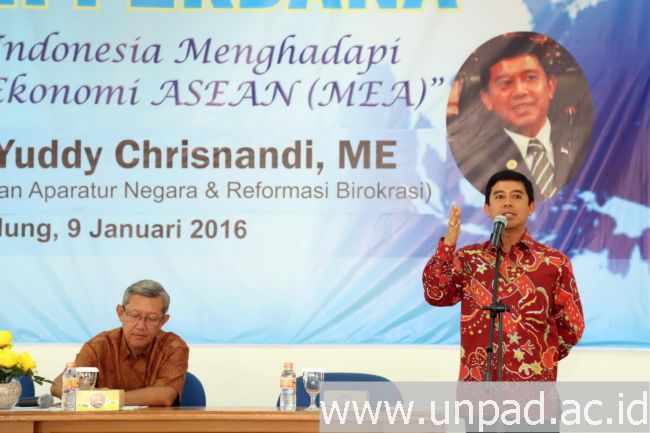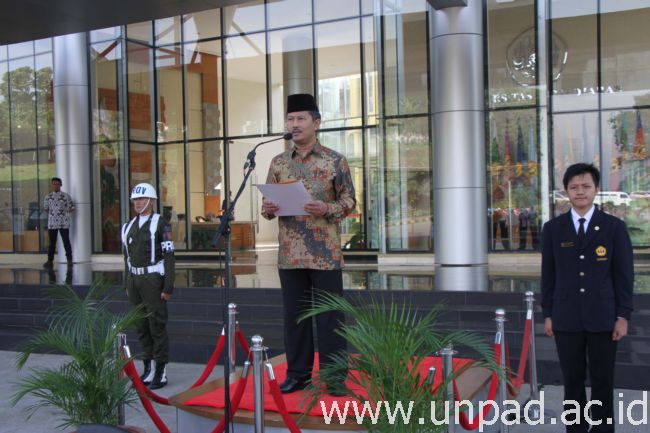[Unpad.ac.id, 2/12/2016] The Government through the Ministry of Administrative and Bureaucratic Reform Republic of Indonesia is encouraging the development of the State Civil Apparatus (Aparatur Sipil Negara-ASN) to support the realization of the Smart ASN 2019-2024 Program. It projects apparatus and prospective apparatus to have both the competence and competitiveness.
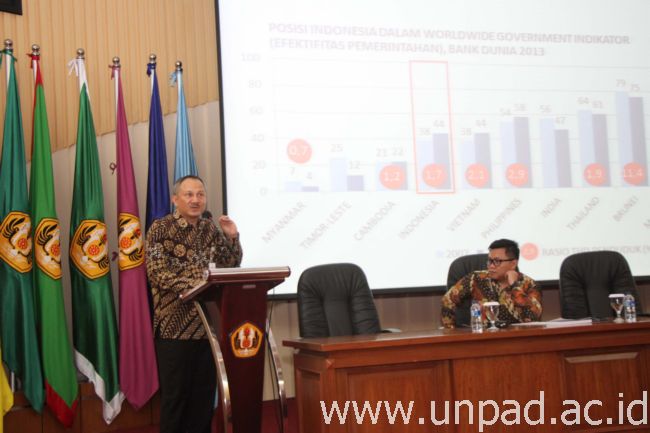
“We seek talented and multitasking people who are able to perform in their own respective field as well as in other fields,” said Deputy of Human Resources, Apparatus Unit, Ministry of Administrative and Bureaucratic Reform, Dr. Ir. Setiawan Wangsaatmaja, Dipl., SE, M.Eng. in the Dissemination for the Implementation of ASN Act, Civil Servants (PNS) and Government Employees in Contract (PPPK) Management Enhance Competitiveness in Bale Sawala Jatinangor, Friday (2/12) afternoon.
The dissemination was attended by Unpad Rector, Prof. Tri Hanggono Achmad, university and faculty officials, heads of divisions and subdivisions, and administrative staff in Unpad. Faculty of Social and Political Sciences lecturer, Yogi Suprayogi Sugandi, S. Sos., MA, PhD. moderated the event.
Dr. Setiawan said that the push to increase the competence is based on the challenges faced today in globalization, international competition, advances in information and digital technology, as well as massive collaborations. Therefore Indonesian ASNs should prepare themselves to face these challenges.
The biggest challenge today is the ASN’s capacity that has not met the development strategy. He explained that the number of civil servants per June 2016 is 4 million employees. The highest number of distribution is Specific Functional Position as Teacher (37.45%) and Public Administration (37.26%). This means that the government is represented 67% by administrative staff.
The Ministry itself has mapped the entire territory development strategy in Indonesia and human resources qualification. As a result, the percentage of ASNs with expertise to support the development is not comparable with that of the administrative personnels.
“This inevitably should be considered when opening formation that leads to the needs and direction of development” said Dr. Setiawan.
Several attempts made by the Ministry include reforming the recruitment process for Echelon I and II, implementing a systematic and IT-based recruitment system for prospective Civil Servants (CPNS), as well as strengthening the functional structures by putting PPPKs into position.
“We are looking forward to replace structural positions and begin to functional positions to ensure focused and professional works” said Dr. Setiawan.
Unpad, he addressed, should begin to boost the capacity of its human resources. Global competition would require qualified lecturers and staff.
On the occasion, Unpad Rector responded that as a legal-based educational institution, Unpad continues to strive in more productive activities related to the three functions. “The status requires productivity and this means that we have to run programs essential to the functions we need to build,” said Rector.
Furthermore, he also said that the optimization of human resources is key to increasing productivity. For that, encouragement to productivity would be the focus. Institutional change is happening now as a transformative process for future progress.
“This should be noted in carrying out daily activities. We should realize whether or not we have been productive,” said Rector. *
Reported by Arief Maulana / eh
